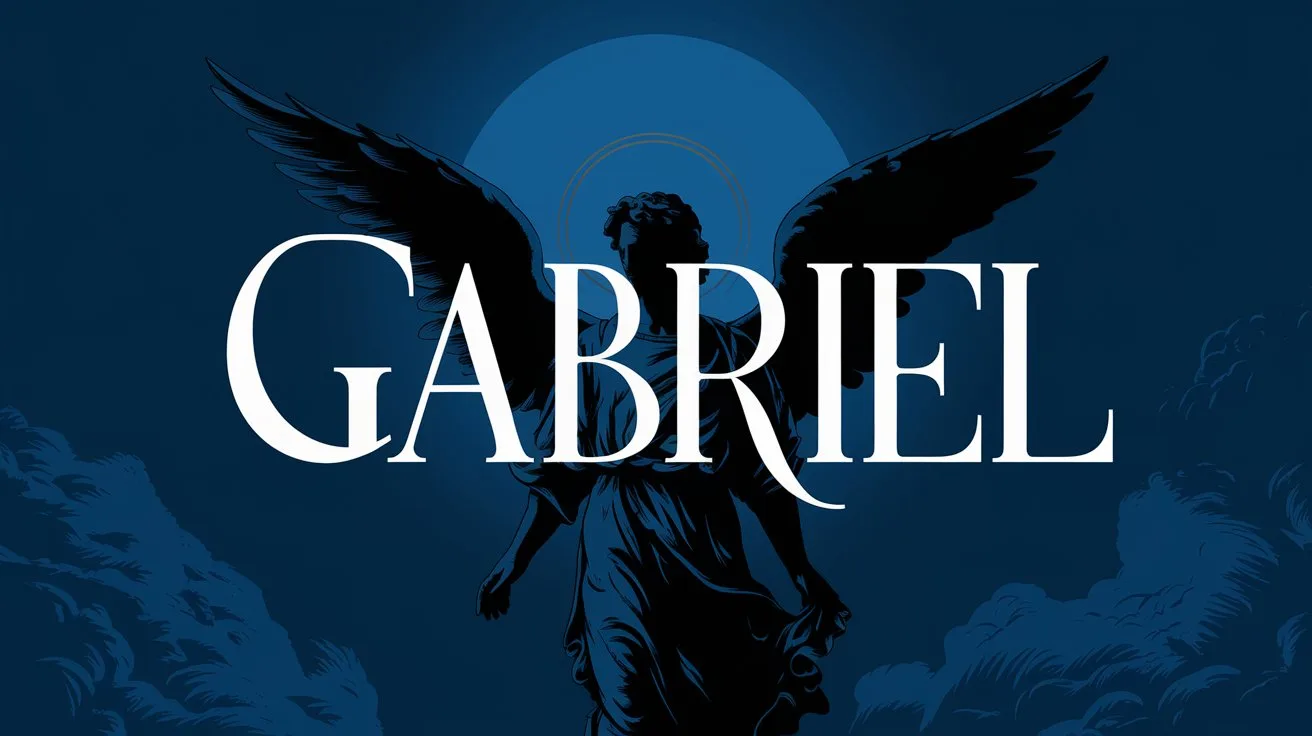Gabriel is one of the few angels named in Scripture, and his role is distinct among the heavenly host. Every time he appears, he is delivering a divine message of great significance, often related to God’s redemptive plan. His name in Hebrew, Gavri’el, means “God is my strength”, which is fitting for a mighty being who stands in the presence of the Lord and proclaims His decrees. From Daniel’s visions to the announcements of John the Baptist and Jesus Christ, Gabriel serves as a messenger revealing the will of God at pivotal moments in history.
Gabriel in the Book of Daniel
The first time we encounter Gabriel is in the Book of Daniel, where he is sent by God to help Daniel understand prophetic visions about the future. Daniel, a man of great wisdom and devotion, was troubled by the visions he received, and God, in His mercy, sent Gabriel to bring understanding.
In Daniel 8:15-17, Gabriel is commanded to make Daniel understand the vision of the ram and the goat, which represents the Medo-Persian and Greek empires. Daniel records,
“Then it happened, when I, Daniel, had seen the vision and was seeking the meaning, that suddenly there stood before me one having the appearance of a man. And I heard a man’s voice between the banks of the Ulai, who called, and said, ‘Gabriel, make this man understand the vision.’ So he came near where I stood, and when he came, I was afraid and fell on my face; but he said to me, ‘Understand, son of man, that the vision refers to the time of the end.’”
Gabriel not only interprets the vision but also emphasizes its connection to the end times. Daniel is overwhelmed by the experience, showing the power and authority Gabriel carries as a messenger of God. In Daniel 9:21-23, Gabriel again appears to Daniel, this time in response to his fervent prayer. Daniel says,
“Yes, while I was speaking in prayer, the man Gabriel, whom I had seen in the vision at the beginning, being caused to fly swiftly, reached me about the time of the evening offering. And he informed me, and talked with me, and said, ‘O Daniel, I have now come forth to give you skill to understand. At the beginning of your supplications the command went out, and I have come to tell you, for you are greatly beloved; therefore consider the matter, and understand the vision.’”
Gabriel then delivers one of the most important prophecies in Scripture: the prophecy of the seventy weeks. This prophecy lays out the timeline for the coming of the Messiah and the unfolding of world events. Gabriel is not only a messenger but also a revealer of God’s divine timeline. He brings understanding to Daniel and affirms that God hears the prayers of the righteous.
Gabriel in the New Testament
Gabriel’s role as a messenger continues in the Gospel of Luke, where he delivers two of the most important announcements in history: the births of John the Baptist and Jesus Christ.
In Luke 1:11-13, Gabriel appears to Zacharias while he is ministering in the temple.
“Then an angel of the Lord appeared to him, standing on the right side of the altar of incense. And when Zacharias saw him, he was troubled, and fear fell upon him. But the angel said to him, ‘Do not be afraid, Zacharias, for your prayer is heard; and your wife Elizabeth will bear you a son, and you shall call his name John.’”
Gabriel later identifies himself in Luke 1:19, saying,
“I am Gabriel, who stands in the presence of God, and was sent to speak to you and bring you these glad tidings.”
Because Zacharias doubts the message, Gabriel renders him mute until the prophecy is fulfilled. This moment shows Gabriel’s authority, as he not only delivers God’s word but enforces its fulfillment.
Shortly after, Gabriel is sent to a young virgin named Mary in the town of Nazareth. In Luke 1:26-31, it is written,
“Now in the sixth month the angel Gabriel was sent by God to a city of Galilee named Nazareth, to a virgin betrothed to a man whose name was Joseph, of the house of David. The virgin’s name was Mary. And having come in, the angel said to her, ‘Rejoice, highly favored one, the Lord is with you; blessed are you among women!’ But when she saw him, she was troubled at his saying, and considered what manner of greeting this was. Then the angel said to her, ‘Do not be afraid, Mary, for you have found favor with God. And behold, you will conceive in your womb and bring forth a Son, and shall call His name JESUS.’”
Gabriel’s announcement to Mary fulfills the prophecy of Isaiah 7:14: “Behold, the virgin shall conceive and bear a Son, and shall call His name Immanuel.” This moment marks the greatest revelation given through Gabriel—the coming of the Messiah, the Savior of the world.
What Kind of Angel is Gabriel?
Gabriel is consistently seen as a messenger angel, delivering God’s word at crucial moments in history. In Luke 1:19, he describes himself as one who stands in the presence of God, indicating a high-ranking position among the angelic host. Unlike Michael, who is specifically called an archangel in Jude 1:9, Gabriel is never given that title. However, his role is significant, and his authority is clear.
Every time Gabriel appears, his presence brings fear and awe, revealing that he carries the glory of heaven. In Daniel 8:17, Daniel falls on his face in fear when Gabriel approaches. In Luke 1:12, Zacharias is troubled, and fear falls upon him. This reaction is common in angelic encounters, showing that Gabriel’s appearance carries divine power.
Gabriel is also shown to be swift and active in carrying out God’s commands. In Daniel 9:21, he is described as flying swiftly to reach Daniel. This aligns with Psalm 103:20, which says,
“Bless the Lord, you His angels, who excel in strength, who do His word, heeding the voice of His word.”
Gabriel moves at the command of God and delivers His messages without delay.
My Final Thoughts
Gabriel’s role in Scripture is both powerful and consistent. He is a trusted messenger of God, revealing divine truths to Daniel, Zacharias, and Mary. His presence is always tied to God’s redemptive plan, whether it is the prophecy of the Messiah in Daniel, the birth of John the Baptist, or the announcement of Jesus Christ.
As believers, we may not receive direct angelic messages, but we have something even greater: the Holy Spirit and the Word of God, which guide us into all truth. Just as Gabriel was sent to prepare the way for Christ’s first coming, we must prepare for His second coming, walking in faith and obedience. The same God who sent Gabriel to deliver His word has also preserved His word for us today, so that we may believe and trust in His promises.





 Get the book that teaches you how to evangelize and disarm doctrines from every single major cult group today.
Get the book that teaches you how to evangelize and disarm doctrines from every single major cult group today.